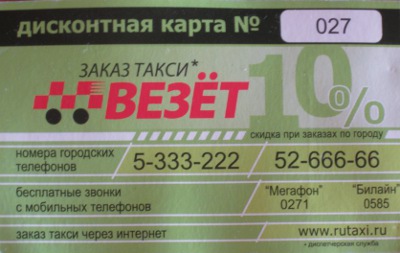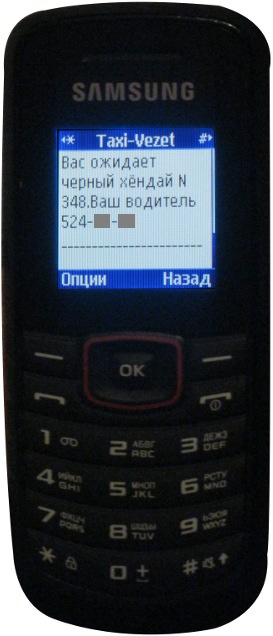Categories: "Technology"
Мультфильм
Cartoon or Мультфильм in Russian is an animated show or movie. It declines as such:
| Sg | Pl | |
| Nom | мультфильм | мультфильмы |
| Acc | мультфильм | мультфильмы |
| Gen | мультфильма | мультфильмов |
| Pre | мультфильме | мультфильмах |
| Dat | мультфильму | мультфильмам |
| Ins | мультфильмом | мультфильмами |
| У меня есть мультфильмы из Японии. | I have cartoons from Japan. |
| Мы рассказали о мультфильмах. | We talked about cartoons. |
| Я узнала об этом предмете из мультфильма. | I learned about the subject from the cartoon |
| Она умерла в мультфильме. | She dies in the cartoon.(Translated as a historical present) |
In America there are a lot of animated shows that are for younger audiences such as Winnie the Pooh, Alice in wonderland and many other works by Disney. But there are also cartoon shows for adults that are usually comedy based such as Archer or Venture bros. Every country has its own form of drawing styles and techniques that are represented in the animations that they have or do. Japan has coined the term anime for their productions, many of which have become international. Japanese artist studios collaborated with Russian studios to create the animated film First Squad or Первый Отряд. Cartoons have various elements that real life motion pictures may not be able to express. “The magic of Disney” relies on the animation most of the time to present the wonders it wants to convey. In Japanese culture people are very reserved and most of the time conceal their emotions, however when one watches their anime many of the characters are given various facial expression and exaggerated body language to represent the emotions in a way that cannot be conveyed in real life.

Такси
The Russian word for taxi is такси. It is an indeclinable neuter noun, which means it never changes its endings:
| Sg | Pl | |
| Nom | такси | |
| Acc | ||
| Gen | ||
| Pre | ||
| Dat | ||
| Ins | ||
Adjectives that modify indeclinable nouns must still occur in the case form required by the context:
| Nom | Вот жёлтое такси. | Here's the yellow taxi. |
| Acc | Я вижу жёлтое такси. | I see a yellow taxi. |
| Gen | Он стоял около жёлтого такси. | He stood near a yellow taxi. |
| Pre | Он приехал на жёлтом такси. | He arrived in a yellow taxi. |
| Dat | Она подошла к жёлтому такси. | She walked up to the yellow taxi. |
| Ins | Мы стояли перед жёлтым такси. | We were standing in front of a yellow taxi. |
Of course those are all possible in the plural as well:
| Nom | Вот жёлтые такси. | Here are the yellow taxis. |
| Acc | Я вижу жёлтые такси. | I see the yellow taxis. |
| Gen | Они стояли около жёлтых такси. | They were standing near the yellow taxis. |
| Pre | Они приехали на жёлтых такси. | They arrived in yellow taxis. |
| Dat | Она подошла к жёлтым такси. | She walked up to the yellow taxis. |
| Ins | Мы стояли перед жёлтыми такси. | We were standing in front of the yellow taxis. |
Since Russians usually don't own cars, they use taxis a lot more than most Americans. This last summer in Kazan I used them constantly. To my surprise, when I bought tickets at the movie theater at Кольцо, I was given a discount taxi card:

I'm Scottish by descent, and let me tell you that we Scots hate paying more than we have to. For us, receiving a discount card is like... gosh... what can I compare it to? It's like getting free and painless high-quality dental work. I mean, you just can't think of anything better. I used that discount card all the time. And what's even better is that when you order your cab using your cell phone, they automatically pick up your number and when your taxi arrives, you usually get a text message saying that it has arrived. For instance, here is a text message I received:

It reads, “Black Hyundai #348 is waiting for you. The driver's number is 524-XX-XX.” Most taxis don't have a taxi sign on them, so that information is really convenient. Why the heck haven't American taxis picked up such a common-sensical idea?
Taxi service is reasonably priced in Kazan, but I wouldn't be surprised if it triples over the next year. Some regulations are going into effect that will increase the fees taxi drivers have to pay, which will probably result in less competition. I'm not looking forward to the change.
Флешка (часть вторая)
Nowadays everyone seems to have a flash drive to transfer files from one computer to another. You stick it in a USB port on your laptop and —bang!— you're in business. The most common Russian word for flash drive is флешка. Even though the third letter is е, the л is pronounced hard. It declines like this:
| Sg | Pl | |
| Nom | флешка | флешки |
| Acc | флешку | |
| Gen | флешки | флешек |
| Pre | флешке | флешках |
| Dat | флешкам | |
| Ins | флешкой | флешками |
When you copy a file to/from a flash drive, you can use quite a few verbs, including скачивать/скачать, копировать/скопировать and скидывать/скинуть. You copy to a флешка using на + accusative:
| Скопируй тот файл на мою флешку. | Copy that file to my flash drive. |
| Я сейчас скину фотки на флешку. | I will copy the photos the flash drive right away. |
| Почему ты не скачал софт на флешку? | Why didn't you copy the software to the flash drive? |
If you copy from a флешка, you use с + genitive:
| Скопируй первое кино с флешки. | Copy the first movie from the flash drive. |
| Я сейчас скину весь пиратский софт с флешки. | I will copy all the pirateware from the flash drive right away. |
| Ничего не скачивай с флешки. На ней есть вирус. Не знаешь, как удалить? | Don't copy anything from the flash drive. It has a virus. Do you know how to get rid of it? |
| — Юр, скопируй с флешки «rocklobster.mp3». Песня тебе понравится. — Ладно, давай... Так, скопировал. А как насчёт других файлов? — Это всё порнушка. Не стоит копировать. Она некачественная. |
“Yuri, copy ‘rocklobster.mp3’ from my flash drive. You’ll like the song.” “Okay, give it here... There we go, it’s copied. What about these other files?” “That's all porn. Don't bother copying it. It’s low quality.” |
Флешка (часть первая)
About the most convenient way these days to move files from one laptop to another is to use a USB flash drive. There are several phrases associated with that concept in Russian, among which are флеш-накопитель "flash storage" and флеш-память "flash memory", but in common usage you will mostly hear флешка or флэшка. It looks odd to Russians to see the letter э anywhere aside from the first letter of a word, so I'm guessing in the long run the флешка spelling will win out. In either case, be sure to pronounce the л hard, not soft, no matter which spelling you use.
| Флешки имеют самую разнообразную форму. | Flash drives come in all sorts of shapes. |

| Чёрт возьми! Я случайно удалил все файлы с флешки. | Dammit! I accidentally deleted all the files from my flash drive. |
| Скинь те фотки на мою флешку, пожалуйста. | Copy those photos to my flash drive, please. |
| — Не хочешь скинуть этот софт? — На флешке нет места. |
"Do you want to copy this program" "There's not enough room on my flash drive." |
Probably the most common question about flash drives is how much data they can hold. The way to ask the question properly is:
| — Какого объёма твоя флешка? — Четыре гигабайта. |
"How big is your flash drive?" "Four gigabytes." |
It's also possible to say things like:
| На сколько гиг твоя флешка? Сколько влазит на твою флешку? У твоей флешки какой объём? У твоей флешки какая ёмкость? У твоей флешки какая вместительность? |
How big is your flash drive? |
I was amused to find out that sometimes geekoids will substitute the word гектар hectare for гигабайт gigabyte:
| На сколько гектар твоя флешка? | How big is your flash drive? |
Last but not least, you might also hear something like:
| Твоя флешка — какой объём? Твоя флешка — какой размер? |
How big is your flash drive? |
Those versions look awful in print. Don't ever write them in an official document or course paper, but don't surprised if you hear them when friends are talking among themselves.
Автобус (часть вторая)
The Russian word for bus, as in public transport, is автобус. It is a perfectly regular first declension noun. Public transport is well developed in large Russian cities, so it's a perfectly normal of the Russian daily routine to ride a bus. To say you are riding “on a bus/by bus” most often they use the preposition на followed by the prepositional case, but occasionally you'll find a bare instrumental case used without a preposition:
| Каждый день я езжу на работу на автобусе. | Every day I take the bus to work. |
| Сегодня я приехал домой автобусом. | I came home today on the bus. |
If something happens inside the bus, then of course you use в + prepositional:
| В автобусе было столько народу! | There were so many people in the bus! |
| Ненавижу, когда молодые люди сидят и целуются в автобусе. Как им не стыдно? | I hate it when kids sit in the bus and make out. They should be ashamed of themselves. |
Although автобус is a fairly simple word, it's the verbs used with it they are sometimes surprising to English speakers. For instance, the most common way to say “to get on the bus” is “to sit into the bus” in Russian, using the verb pair садиться/сесть:
| Подозреваемый сел в автобус в восемь часов. | The suspect got on the bus at eight o'clock. |
| Каждое утро я сажусь в автобус и еду на работу. | Every morning I get on the bus and go to work. |
When you get off the bus, Russians either say “to step down from the bus” сходить/сойти or “to exit from the bus” выходить/выйти:
| Хулиган сошёл с автобуса. | The punk got off the bus. |
| Француженка вышла из автобуса. | The French woman got off the bus. |